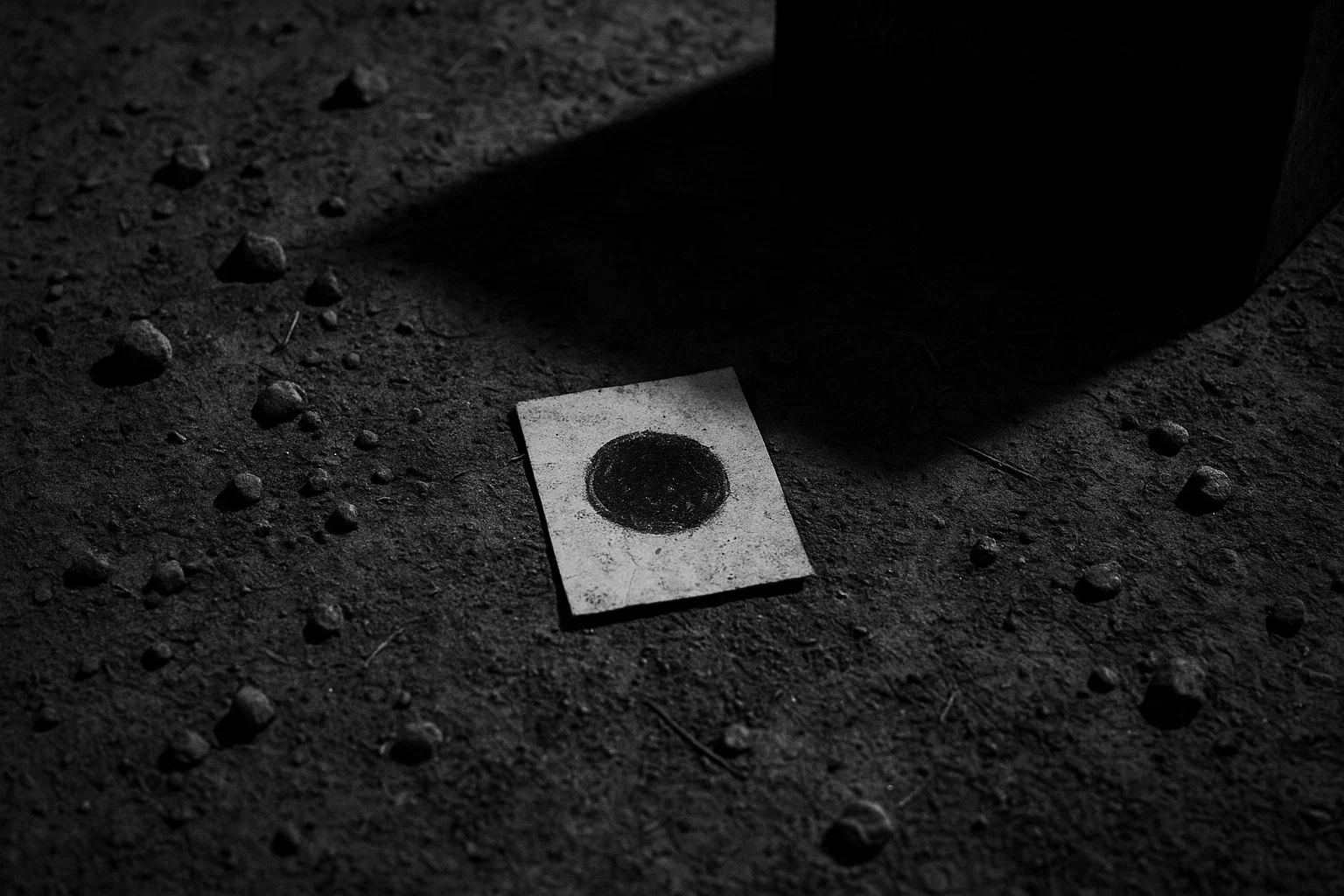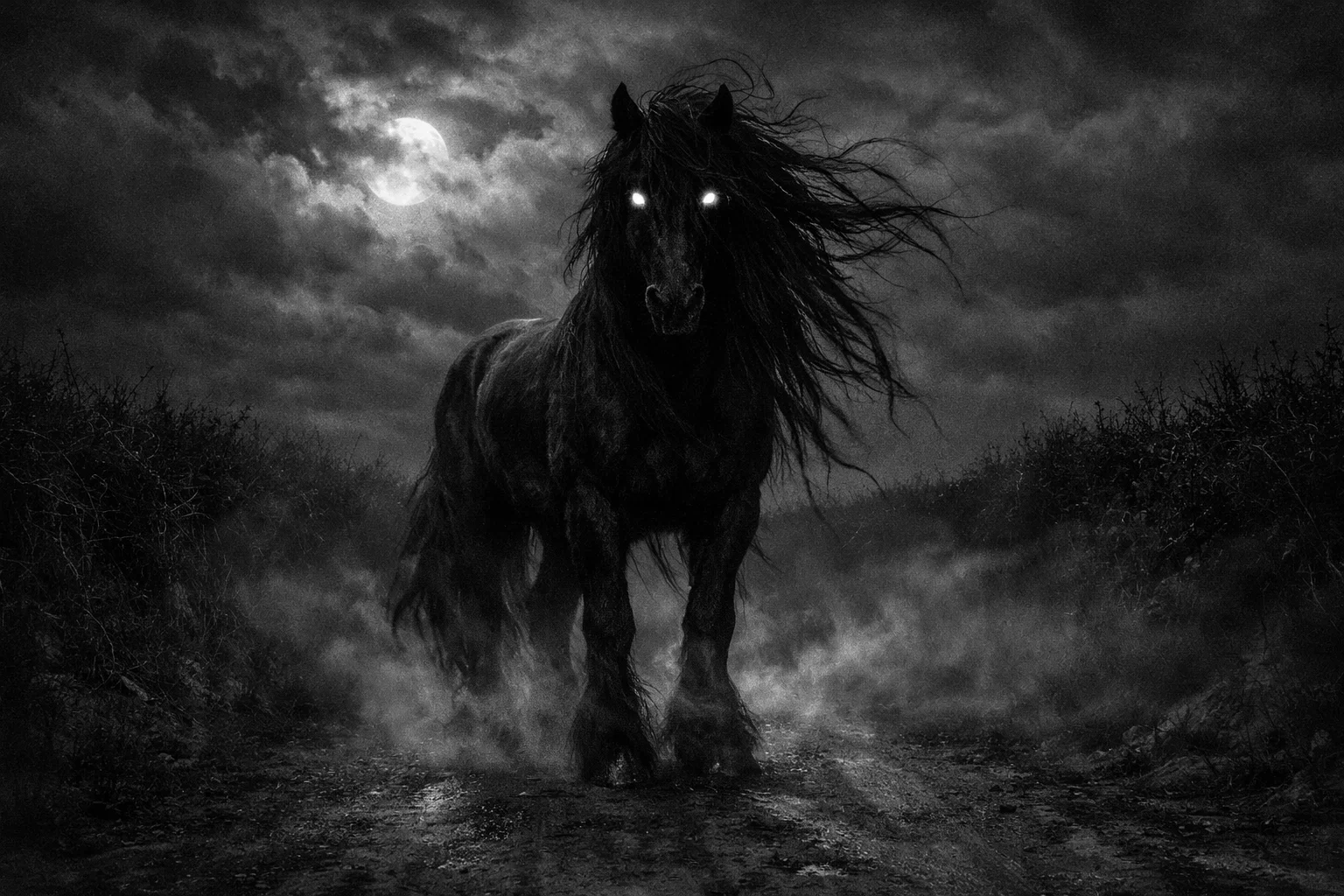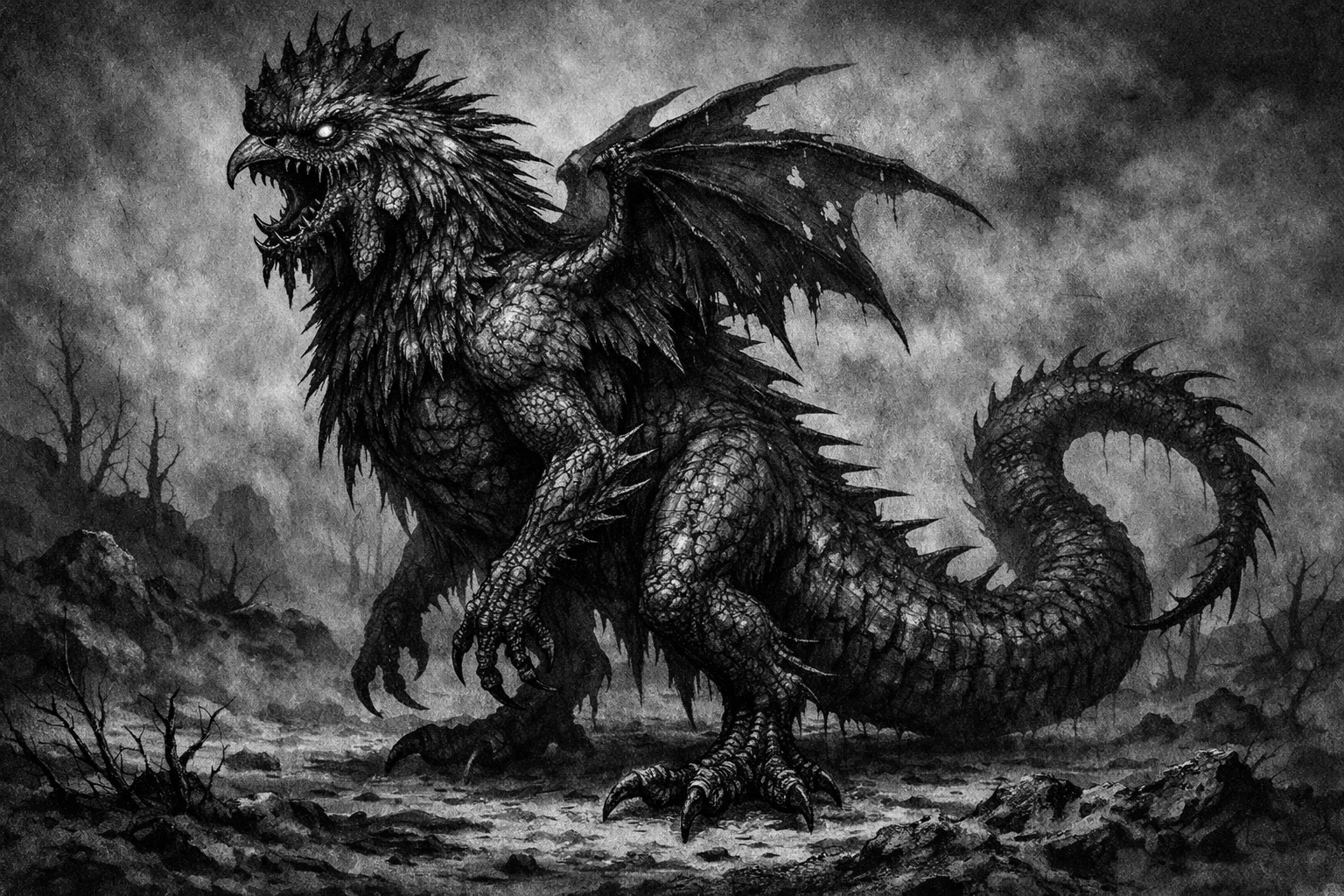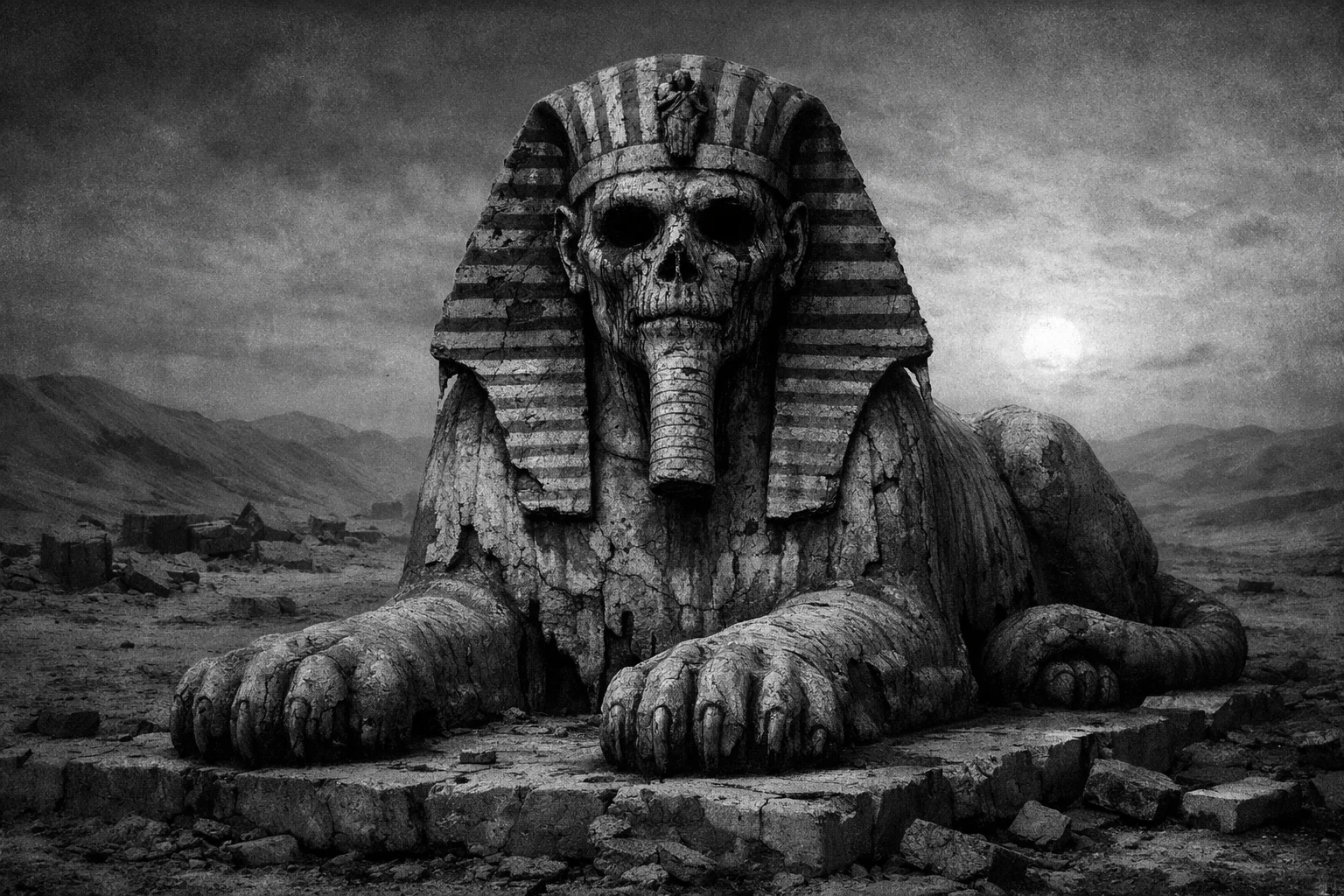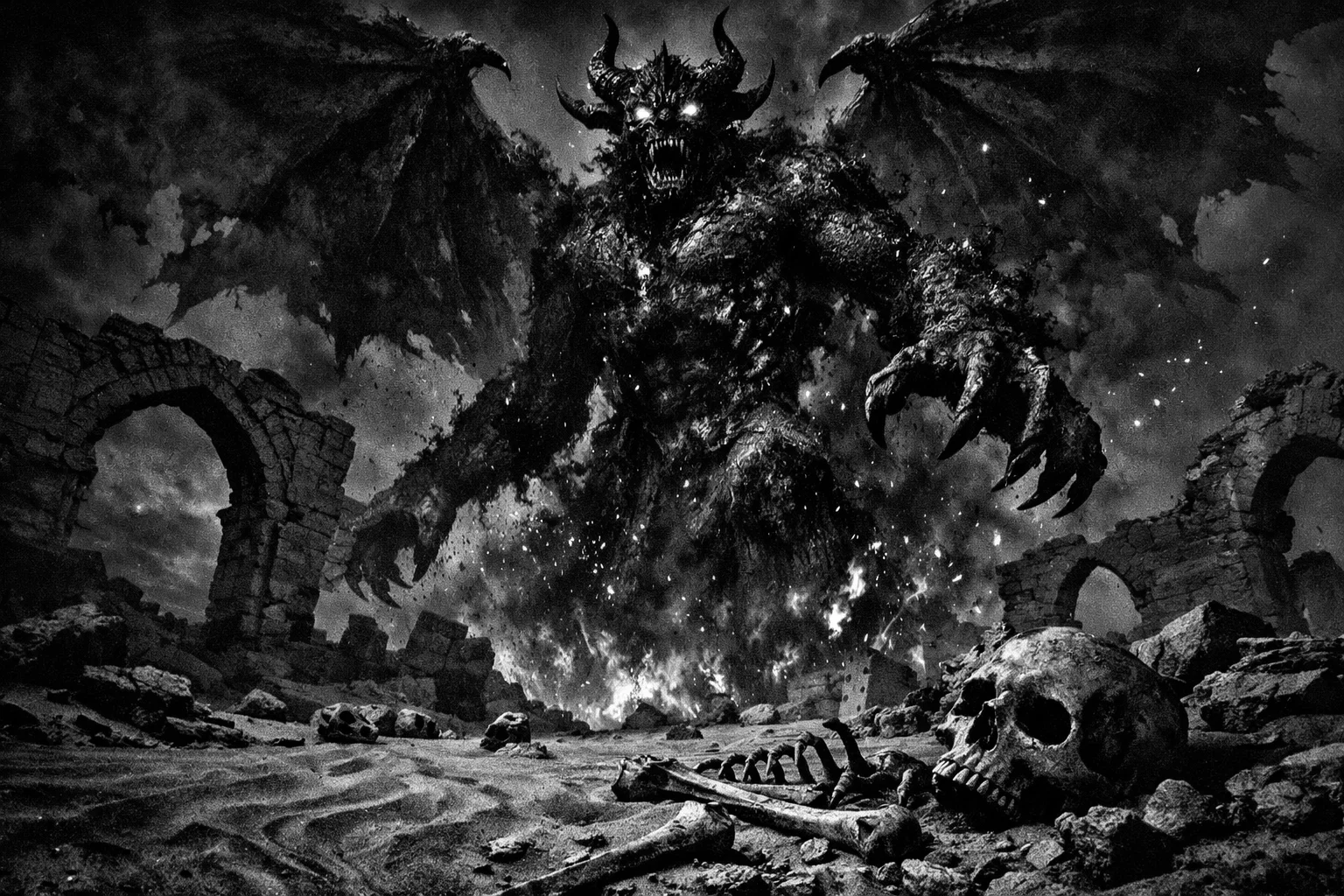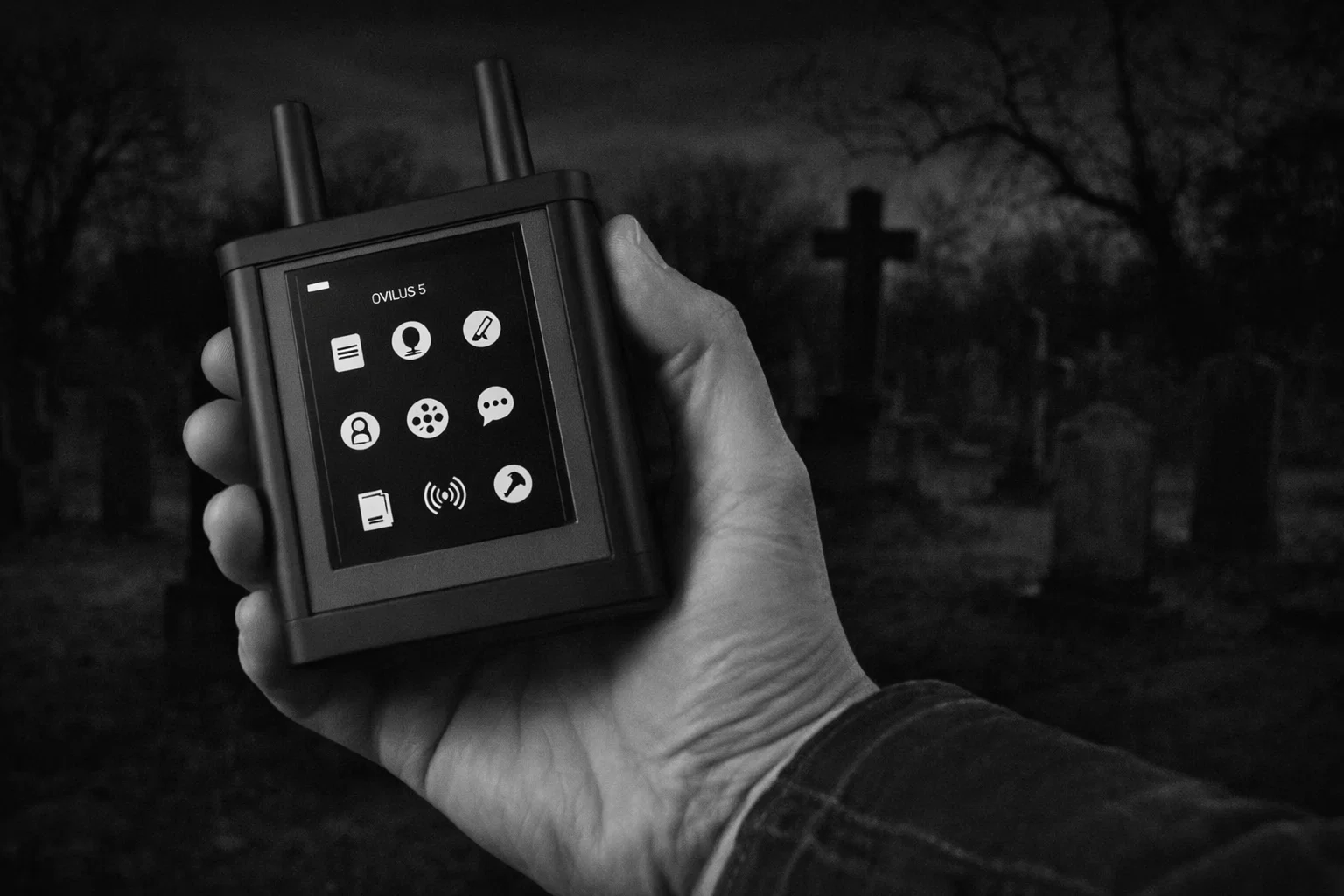The Lottery, a chilling short horror story by Shirley Jackson that defines Shirley Jackson horror. This classic horror fiction masterpiece weaves scary short stories into a gripping narrative of blind tradition and hidden cruelty.
Set in a quiet village, The Lottery unveils a ritual that binds the community through a terrifying annual event, making it one of the most unforgettable disturbing tales. With its stark prose and shocking climax, this tale is a must-read for fans of scary short stories seeking a descent into unease.
Summary
Chapter 1: The Gathering
June 27th dawned clear and warm, the sun casting a golden glow over the village square, where flowers bloomed in tidy rows and the grass shimmered a vibrant green. By ten o’clock, the townsfolk began to assemble between the post office and the bank, their voices a soft hum against the morning’s stillness.
Children arrived first, darting through the crowd, their pockets sagging with smooth, round stones they’d gathered from the riverbank. Bobby Martin, a wiry boy with freckles, led the charge, his jacket bulging as he piled stones in a neat heap at the square’s edge. Dickie Delacroix and Harry Jones joined him, their hands quick to select the smoothest pebbles, their laughter sharp and fleeting, as if they sensed the weight of their task.
Men trickled in next, their boots scuffing the dirt, their talk of crops, weather, and taxes muted. They stood in loose clusters, hands in pockets, their smiles faint and forced, eyes darting to the growing pile of stones. Mr. Adams, tall and weathered, nodded to Mr. Clyde Dunbar, who leaned on a crutch, his leg bandaged from a fall.
The women followed, their faded house dresses fluttering in the light breeze, their gossip clipped, eyes scanning the crowd. Mrs. Delacroix, her hair pinned tightly, exchanged a quick word with Mrs. Graves, the postmaster’s wife, but their laughter died quickly, swallowed by the square’s growing tension.
Old Man Warner, seventy-seven and stooped, shuffled through, his cane tapping the ground. He muttered to himself, his voice rough with age, complaining about younger towns abandoning old ways. “Seventy-seventh lottery,” he said to no one in particular, his eyes narrowing as he scanned the faces.
The air thickened as Mr. Summers, the coal dealer, arrived, carrying the black wooden box, its paint chipped, its corners worn smooth by decades of use. Mr. Graves trailed him, balancing a three-legged stool, his face somber. They set the box on the stool, and the crowd shifted, a ripple of unease passing through. Tessie Hutchinson hurried in, her apron askew, her cheeks flushed from running.
“Clean forgot what day it was,” she said, laughing to Mrs. Delacroix, who nodded tightly, her hands twisting together. Tessie’s smile faded as she caught sight of the box, its dark presence anchoring the square. The villagers fell quiet, families drawing closer, children hushed by sharp glances from parents, as the morning’s warmth seemed to cool under the shadow of what was to come.
Chapter 2: The First Draw
Mr. Summers stood beside the black box, his shirt crisp despite the heat, his voice steady as he addressed the crowd. “Let’s begin, folks,” he said, stirring the slips of paper inside the box with a practiced hand. The villagers straightened, their faces a mix of resignation and nervous anticipation, hands fidgeting at their sides.
Each head of household would draw one slip, representing their family, from the box that had served the village for generations. The slips were simple—white, some edges frayed—but one bore a black spot, drawn heavily with a pencil from Mr. Summers’ coal company, its mark a silent sentence.
The roll call started alphabetically. Mr. Adams stepped forward, his boots crunching gravel, his hand steady as he reached into the box. He drew a slip, glanced at it, and stepped back, his wife whispering urgently, “Is it—?” He shook his head, lips tight. The Allens followed, then the Bentleys, each man moving with deliberate calm, though some hands trembled as they unfolded their papers.
Mr. Clyde Dunbar, still on his crutch, sent his wife to draw, her face pale as she reached in, her fingers brushing the slips before pulling one free. She hurried back to her children, clutching the paper unopened, her breath shallow. The crowd watched, silent, as names continued—Harburt, Hutchinson, Jones, Zanini.
Bill Hutchinson, Tessie’s husband, approached, his broad shoulders tense, his hand lingering in the box a moment too long. He drew, tucked the slip into his pocket, and returned to Tessie, his jaw set.
Tessie stood close, her hands twisting her apron, her eyes darting between Bill and the box. “Go on, Bill,” she said, her voice sharp, almost accusing. Their children—Nancy, twelve and bright-eyed; Bill Jr., lanky at sixteen; and little Dave, barely four—clustered nearby, their earlier play forgotten.
Old Man Warner went last, his cane tapping as he grumbled about “fools giving up tradition.” He drew, his gnarled fingers unfolding the slip with a snort, then rejoined the crowd. Mr. Summers scanned the square, his voice calm but firm. “Everyone drawn? Any absent?” Silence answered, broken only by the rustle of paper and a child’s nervous giggle. “Open your slips,” he said.
Papers unfolded slowly, some villagers exhaling in relief, others stealing glances at neighbors. Mr. Adams showed his blank slip to his wife, who sagged against him. Mrs. Dunbar clutched hers, whispering a prayer as it proved clean. Bill Hutchinson raised his slip, and a murmur swept the crowd—the black spot, stark and heavy, stared back. Tessie’s breath caught, her face draining of color. “You didn’t give him time!” she cried, pushing through the crowd.
“He didn’t get to choose proper!” Her voice rose, shrill, drawing frowns from neighbors. Mr. Summers raised a hand, his tone even. “Rules are rules, Tessie. It’s done.” She shook her head, eyes wild, but the crowd’s gaze hardened, their loyalty to the ritual unwavering. The Hutchinsons were chosen, and the lottery pressed forward.
You May Also Like: Jormungandr: The Midgard Serpent Destined to End the Gods
Chapter 3: The Family’s Fate
The first draw had singled out the Hutchinsons, and now the second would choose one among them. Mr. Summers cleared the box, tossing out the old slips and placing five new ones inside—one for Bill, Tessie, Bill Jr., Nancy, and little Dave. The black spot was redrawn, its mark heavier, as if etched with intent.
The villagers formed a loose circle, their faces a mix of pity and resolve, their hands already reaching for stones from the pile the children had built. The air was thick, the sun’s warmth now oppressive, as the Hutchinsons stood together, isolated in the square’s center.
Mr. Graves held the box, his expression unreadable, as little Dave was called first. The boy toddled forward, his small hand barely reaching the box’s rim. Mr. Summers guided him, pulling a slip and unfolding it to show blank paper. A soft sigh escaped the crowd, mothers pulling their own children closer.
Nancy went next, her ponytail bouncing, her face brave as she drew. Her slip was clean, and she grinned, hugging Bill Jr., who stepped up with a teenager’s swagger. His slip, too, was blank, and he nodded, stepping back to stand by Nancy. Bill approached, his movements slow, his eyes avoiding Tessie’s.
He drew, unfolded his slip, and showed it blank, his shoulders slumping slightly. Tessie stood alone, her apron knotted in her fists, her breath uneven. “It’s not right,” she whispered, her voice barely audible, but no one moved to comfort her.
She stepped to the box, her hand trembling as it dipped inside, brushing the single remaining slip. The crowd leaned in, their silence a weight, their eyes locked on her. She pulled the paper out, holding it closed, her gaze darting to Bill, to Mr. Summers, to the faces she’d known all her life. “Open it, Tessie,” Mr. Summers said, his voice soft but firm.
Her fingers shook as she unfolded the slip, the black spot glaring like an accusation. A gasp rippled through the square, and Tessie’s knees buckled, her hand clutching the paper as if she could will it blank. “No,” she said, her voice rising, “it isn’t fair, it isn’t right!” Bill grabbed her arm, steadying her, but his face was stone, his eyes distant. The villagers stepped back, widening the circle, their hands tightening on stones—some small, some so large they needed both hands.
Old Man Warner’s voice cut through, sharp and cold. “Come on, everyone, let’s finish it.” Mrs. Delacroix, Tessie’s friend since childhood, hefted a heavy stone, her face set, her eyes avoiding Tessie’s. The children—Nancy, Bill Jr., even little Dave—picked up pebbles, their movements mechanical, their expressions blank.
Tessie backed away, her hands raised, searching for a gap in the circle, but the villagers closed ranks, their faces a wall of duty. “Please,” she begged, her voice breaking, tears streaking her face, “you don’t have to do this.” The crowd’s silence was her only answer, their hands poised, waiting for the signal to begin.
Chapter 4: The Ritual’s End
The first stone struck Tessie’s shoulder, a sharp crack that drew a cry from her lips. She staggered, her arm raised to shield her face, blood seeping through her blouse where the stone had bitten. The crowd advanced, their movements deliberate, almost ceremonial, their faces a mix of grim resolve and something darker—relief that it wasn’t them.
Bobby Martin threw next, his pebble striking her thigh, and she stumbled, her cry sharper now. Mrs. Graves, usually quiet and kind, hurled a rock that grazed Tessie’s cheek, leaving a red welt. The children’s pebbles rained down, stinging like a swarm, and Tessie’s voice grew hoarse, her screams echoing across the square.
“It isn’t fair!” she shouted, falling to one knee, her hands clawing at the dirt, her apron torn. The villagers pressed closer, their stones flying faster now—men with heavy rocks, women with smaller ones, children darting in to throw and retreat. Old Man Warner stood at the edge, his voice rising above the chaos, chanting, “Lottery in June, corn be heavy soon,” as if the words sanctified the act.
Tessie’s eyes found Bill, pleading, but he looked away, his own stone raised, his hand steady. Mrs. Delacroix threw again, her large stone hitting Tessie’s back, knocking her flat. The crowd surged, their throws relentless, a tide of judgment that drowned her cries.
Tessie crawled, her breath ragged, her vision blurring as stones pelted her—her arms, her legs, her head. Blood matted her hair, streaked her face, pooled in the dirt beneath her. “Please… stop…” she gasped, her voice a whisper now, her strength ebbing. The villagers’ faces blurred into a single mass, their eyes empty, their hands unyielding.
A child’s stone struck her temple, and she slumped, her fingers twitching in the dust. As her sight dimmed, a shadow flickered at the square’s edge—a figure, tall and cloaked, unnoticed by the crowd, its presence chilling the air.
Its eyes gleamed, sharp and unnatural, fixed on Tessie as she lay broken. Another stone arced down, heavy and final, and her world dissolved into darkness, the figure stepping closer as the crowd’s chants faded.
You May Also Like: The Statue | Horror Story
Chapter 5: The Silence After
The villagers dispersed, their hands empty, their steps quick as they left the square. The sun still shone, the flowers still bloomed, but the air felt heavier, tainted by what had passed. Mr. Summers packed the black box, its wood creaking as he carried it to the coal company’s basement, locking it away until next June.
No one spoke of Tessie, her name erased from conversation, her absence a wound the village refused to acknowledge. The children returned to their games, their laughter hollow, the pile of stones left scattered for another year.
Mrs. Delacroix scrubbed her hands at home, the water running clear but her fingers trembling. Bill Hutchinson lingered in the square, staring at the bloodied patch of dirt, his face unreadable, his hands shoved deep in his pockets.
Old Man Warner shuffled to his porch, muttering about the harvest, his belief in the lottery unshaken. The village resumed its rhythm—planting, gossip, chores—but a shadow lingered, a quiet dread that settled in the spaces between words. Some villagers dreamed that night of the cloaked figure, its gaze piercing, its presence tied to the box’s dark heart.
Whispers spread, faint and fearful, of other towns where the chosen vanished, not died, taken by something older than the ritual. No one spoke it aloud, but the question gnawed: was the lottery for the corn, or for something else? The black box waited, silent, its secrets locked tight, ready to claim another name when summer returned.

